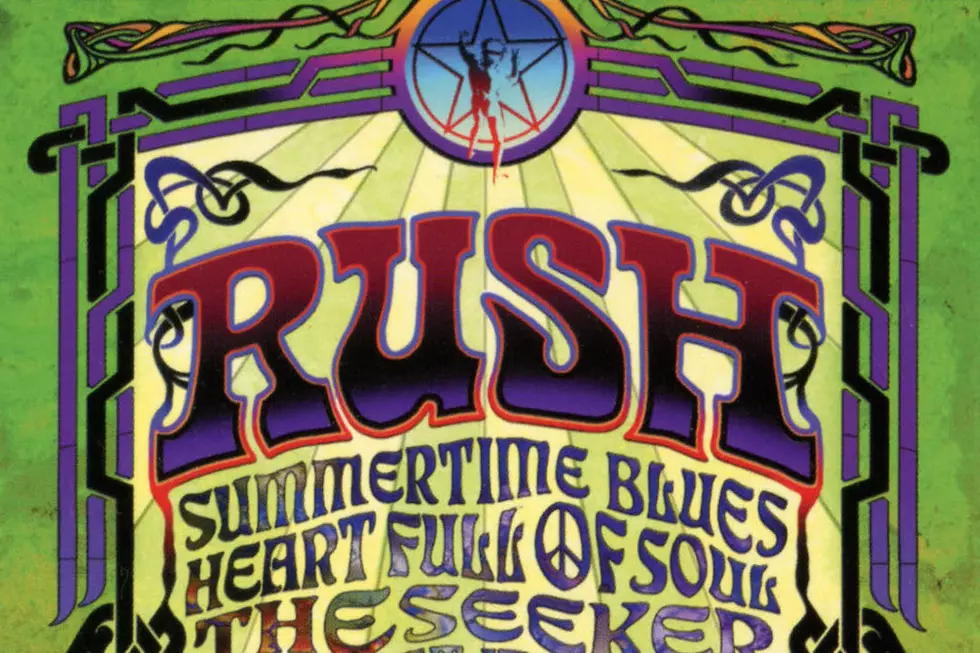
How Rush Explored Their Influences on ‘Feedback’ EP
Rush celebrated their 30th anniversary by doing a little crate-digging to pay tribute to some early influences.
The trio cut their teeth on mid-to-late '60s rock 'n' roll, drawing not only on the brash sounds of Blue Cheer, the Who, the Yardbirds and Cream, but also on the styles of Buffalo Springfield and Love. Released on June 29, 2004, Feedback found Geddy Lee, Alex Lifeson and the late Neil Peart tipping their collective hat to all those bands.
Kicking off the EP is a rousing rendition of Eddie Cochran's classic "Summertime Blues." It's been covered countless times, notably by Blue Cheer (No. 14 in 1968) and the Who (No. 27 in 1970) – though neither matched the chart success of the original, which shot to No. 8 in 1958. Rush's version takes equally from the Who and Blue Cheer, melding the styles of both bands together, while proudly putting the Rush stamp on it.
Two Buffalo Springfield songs are tackled. "For What It's Worth," their Top 10 hit from 1967, as well as the early Neil Young song "Mr. Soul" are both done up Rush-style – with "Mr. Soul" coming out the better of the two. The Yardbirds' "Heart Full of Soul" keeps things rolling as Lifeson pays back a bit to Jeff Beck. As with all the songs on Feedback, Rush stayed faithful to the original.
Listen to Rush's 'Summertime Blues'
Another nod to the Who arrives via a nice take on "The Seeker." The original was released as a single in the spring of 1970 and failed to make the Top 40. Still, it has long been a favorite of die-hard Who fans.
Rush never truly dipped their musical toes into the genuine blues, so it was no surprise that their take on Robert Johnson's standard "Crossroads" owes more to Cream's version. The guys rock it out, no doubt, but ultimately Rush's update is a bit lackluster compared to Cream's take. Perhaps the most obscure song included here is Love's "Seven and Seven Is," which first appeared as a single in the summer of '66 when it sailed up to No. 33 nationally. Rush don't come anywhere near the fire and drama of Arthur Lee and company, but you gotta give 'em credit for trying.
Feedback was released to coincide with Rush's R30 tour, and served as a good way to acknowledge where they came from musically – while possibly giving their fans a little education along the way. One other significant thing to note about the EP is that this is the closest Rush ever got to returning to the no-frills, straight-ahead rock of their 1974 debut album, with no odd time changes, book-smart lyrics or planets of the solar federation circling anywhere.
While all that stuff – and more – became signatures of Rush, it was exciting to hear them just plug in and crank it up.
Top 50 Progressive Rock Albums
The Rush / Metallica Team-Up That Slipped Away
More From Talk Radio 960 AM









